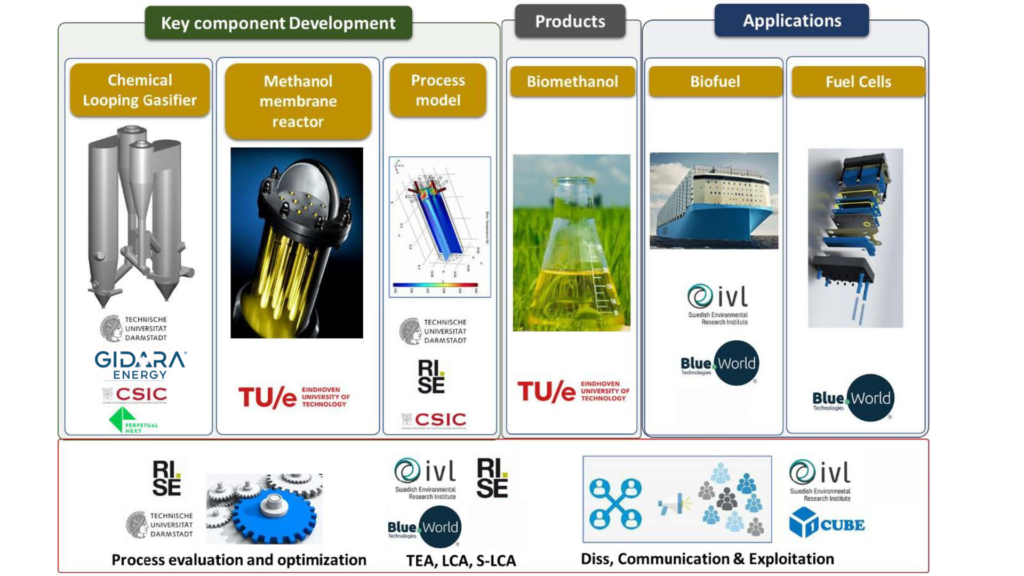
Biofuels are critical for decarbonizing sectors like heavy industry, shipping, aviation, and heavy-duty transport, where emissions are difficult to mitigate. Biofuel demand reached 170 billion liters in 2022, and by 2030, it needs to exceed 400 billion liters to achieve Net Zero Emissions by 2045. This requires an annual growth of 11% and an increase in biofuels from bio-waste and nonfood crops to over 40%. Micro-algae also show potential for third-generation biofuels.
Among biofuels, biomethanol is a key alternative for decarbonizing shipping and heavy-duty transport. Methanol can be used in engines, blended with other fuels, or for electricity production in fuel cells. Companies like Stena Line and Maersk are already using methanol-powered vessels. Methanol’s global consumption as a fuel rose from less than 1% in 2000 to over 14% in 2021. Methanol also serves as an efficient hydrogen carrier, easing transportation and storage challenges, and has potential for decarbonizing electricity systems. However, less than 1% of methanol production is renewable, so scaling up renewable methanol is crucial for achieving climate targets.




